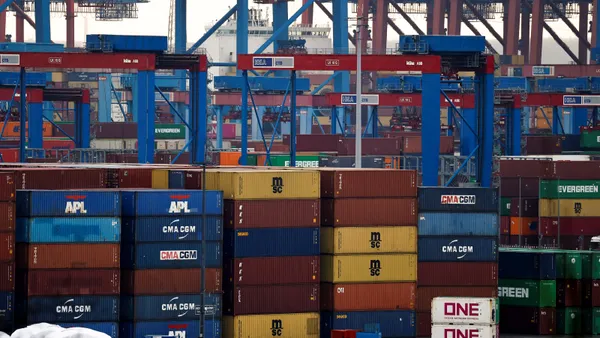Dive Brief:
- Most medtech companies are struggling with expensive and fragmented manufacturing and distribution footprints, often due to growth through acquisitions, according to a new analysis by McKinsey.
- Manufacturers facing pressure from rising operational costs and demand for increased services need to overhaul their supply chain networks to remain competitive, the consulting firm said.
- Medtech lags other highly regulated industries, including the pharmaceutical sector, in developing manufacturing capabilities in emerging markets, McKinsey said.
Dive Insight:
Medtech companies that take the plunge and redesign their operational networks stand to save as much as 15% in costs within three years while improving delivery lead times, McKinsey found. The consultants said a few leading medtech manufacturers have already done so.
The firm recommends medtechs previously dissuaded by concerns about potential quality risks and logistics disruptions reconsider moving manufacturing to emerging countries. The consultants projected that emerging markets will play an increasingly important role in the medtech supply chain over the next five years.
Two countries in particular, Costa Rica and Malaysia, are becoming manufacturing hubs that meet the bar for quality and talent, and their governments are offering incentives to attract the investment, McKinsey said. The firm also notes that some emerging economies are becoming sizable markets for medtech products, increasing the attractiveness of establishing local production facilities.
McKinsey also recommends medtech manufacturers consider adding contract manufacturing organizations (CMOs) and third-party logistics providers to the supply chain. Contract operators have improved both quality and costs and their use is growing quickly, the consultants said.
Key production processes that CMOs are increasingly handling include casting services for orthopaedics and electronic component manufacturing and subassembly for in vitro diagnostics. McKinsey suggests outsourcing opportunities also exist in surgical tools, intravenous pumps and neurostimulation.
Still, risks in outsourcing should not be underestimated and include the loss of intellectual property and potential regulatory, quality and delivery issues, the report cautioned.
"Success rests on having the right talent, processes, and performance-management mechanisms to manage an ecosystem of third-party partners," McKinsey wrote.









